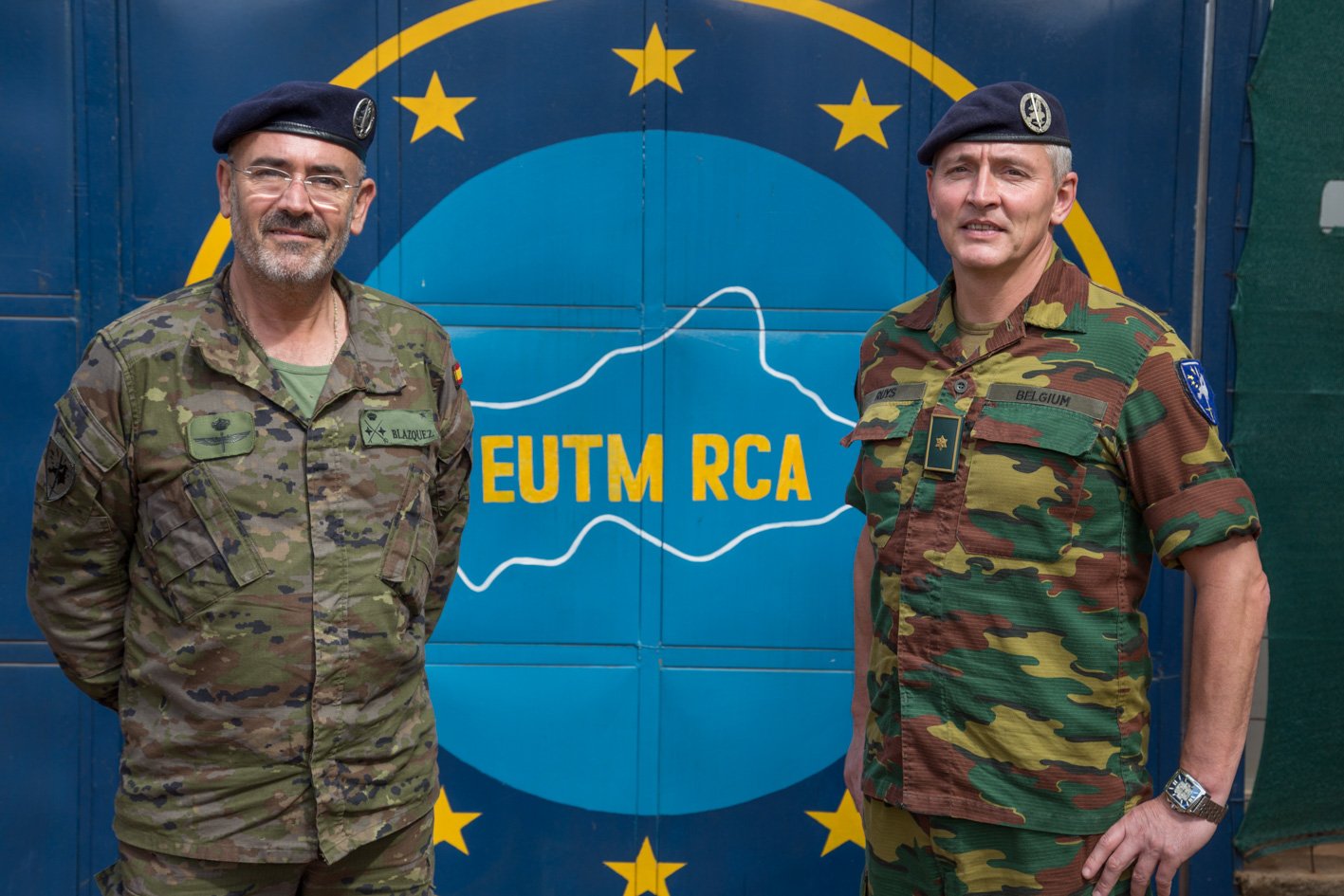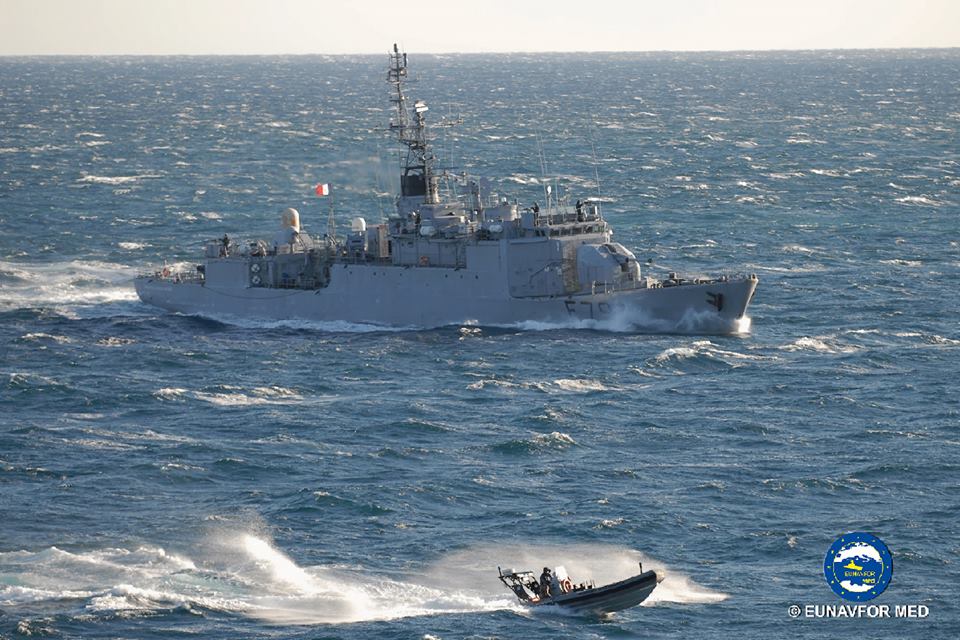Towards a European mission in Georgia: EUMM Georgia?
 (BRUSSELS2) The 27 ambassadors who are members of the politics and security committee (COPS) meet on August 26 to discuss the Georgian crisis. Like the previous meetings for more than three weeks – August 12 (to prepare the Council of Foreign Ministers) and August 19 (to take stock of the situation) – it is Georgia which will be at the center of the discussions.
(BRUSSELS2) The 27 ambassadors who are members of the politics and security committee (COPS) meet on August 26 to discuss the Georgian crisis. Like the previous meetings for more than three weeks – August 12 (to prepare the Council of Foreign Ministers) and August 19 (to take stock of the situation) – it is Georgia which will be at the center of the discussions.
A first joint Commission – Council document was distributed on August 19, setting out the main possible avenues. Among these are:
• In the very short term, the strengthening of the office of the Special Representative of the EU in Tbilisi, the Swede Peter Semneby and the “Border Support Team” (BST) already in place. Around half a dozen people (we are talking about six to eight), mainly political advisers, could thus be sent very quickly (in the coming days = this could be a decision by the European Council). Which requires, formally, to modify the joint action (which dates from 2003) in particular to provide a budgetary extension.
• The reinforcement of the delegation of the European Commission in Tbilisi and Sitcen, the EU intelligence center, by national experts seconded from Member States specializing in the Caucasus countries.
• In the medium term, a “european monitoring mission” could be deployed, based on the model of those deployed in former Yugoslavia or Aceh (Indonesia). The various competent committees of the Council (Relex, Coest, etc.) are currently working together, as are the EU General Staff and the new CCPC.
The experts must, in fact, consider answers to a certain number of questions (non-exhaustive list):
– If the EU sends a mission, the nature of the mission: civil or military, or even… civil-military?
– the context of the mission: ESDP mission set up in cooperation/liaison with that of the OSCE? On the basis of a UN resolution? Or on your own (with invitation from Georgia)?
– financing: if it is a civilian mission, it is the community budget – in its “PESC – external relations” line – which is used (the European Parliament must vote for an increase in the budget); if it is military, it is the Member States, partly with a solidarity mechanism (Athena) (1);
– the legal basis of the mission: new decision (for a specific “Pesd” mission), or modification of the Joint Action already in progress
– the number of people assigned to this mission and the budget;
– the detailed mandate of the mission: border surveillance, reporting of violations of the peace plan (but which one), monitoring of human rights, protection of minorities, alert reports to the Council and the belligerents;
– the nature of cooperation with the belligerents: Georgia and, above all, Russia, etc.
The mandate of the mission could be “modeled” on two previous European missions:
– the closest in mandate and geopolitical context – but the furthest in time is – the EUMM monitoring mission in the former Yugoslavia which had taken over, in 2001, from what was the first ESDP mission avant la lettre: the European Community observation mission in former Yugoslavia (ECMM), begun… in 1991 (read: The first "deaths on mission" of the EU, it was 20 years ago). It was particularly responsible for monitoring the borders, born of the various conflicts between the former Yugoslav republics. Composed of 120 observers, 26 European States participated in the end (EU-25 + Norway), this mission aimed to:
- (a) monitor developments in the political and security situation in the area under its jurisdiction;
- b) pay particular attention to border surveillance, inter-ethnic issues and the return of refugees;
- c) prepare analytical reports based on the instructions received;
- (d) contribute to the early warning of the Council and the building of confidence, within the framework of the stabilization policy pursued by the European Union in the region; etc.
 – the closest in time, but in a slightly different context, is the AMM mission in Aceh, Indonesia – responsible for monitoring the implementation of the peace agreement between the Indonesian government and the “Free Aceh” movement (seejoint action). The main objective of this mission was to: a) monitor the demobilization of the GAM and its disarmament; (…) c) the human rights situation; (…) g) alleged violations of the memorandum of understanding and complaints relating thereto; h) establishes and maintains relationships and good cooperation with the parties.
– the closest in time, but in a slightly different context, is the AMM mission in Aceh, Indonesia – responsible for monitoring the implementation of the peace agreement between the Indonesian government and the “Free Aceh” movement (seejoint action). The main objective of this mission was to: a) monitor the demobilization of the GAM and its disarmament; (…) c) the human rights situation; (…) g) alleged violations of the memorandum of understanding and complaints relating thereto; h) establishes and maintains relationships and good cooperation with the parties.
On the international cooperation side, the mission will have to rely on two other internationals currently on site:
– the UN mission in Georgia, Monug, deployed in Abkhazia which includes the participation of soldiers, including around 60 from an EU country, but whose mandate is more limited than what a mission could be ESDP (see its latest report: Georgia: more effective controllers than current observers?).
– the OSCE mission in Georgia.
In the background of all these discussions is the geopolitical context: if we cannot have an official agreement from the Russians to the deployment of these missions, the EU will have to obtain their tacit agreement. Europeans must also avoid recognizing that the “Georgia-South Ossetia” boundary is an international border, and thus ratify an intangible “green line”. We also need a peacekeeping force (within its force mandate), which can work, without a peace plan, on both sides of a border (Georgia-Osetia). Finally, we must (appear) to assert ourselves against the Russians without (appearing) to rush them. The path is therefore delicate…
(1) Logic would dictate that it be a civilian mission – even if it will be made up of soldiers – or civil-military, therefore with a good share of the community budget. We will then see if the European Parliament will agree to vote for a budgetary extension, in line with its very committed and interventionist speech, to the “external relations – civil missions of
ESDP”, already well spent by the Eulex Kosovo mission.
(NGV)
Photo credit: Council of the EU (Peter Semneby)

